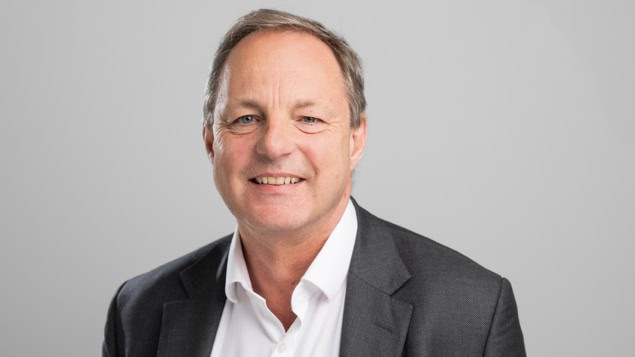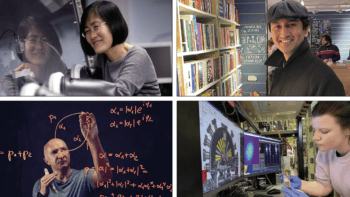Dave Smith is the UK government’s national technology adviser based in the Department for Science, Innovation and Technology (DSIT). In this role, he advises the government on technology policy and builds links with industry and academia. After completing a PhD in physics at the University of Warwick, Smith worked in several roles in the technology industry. Before being appointed to his current post, he was the director of central technology at Rolls-Royce.

What skills do you use every day in your job?
Being sociable, switching topics in an instant and making judgements.
Being sociable may sound trivial, but collaboration has been vital in all the roles I have had, especially now that I work in such a large and complex organization. No single person has the answer to the challenges we face (although occasionally you meet people who think they do). By working together, humans accomplish amazing things.
A key feature of seniority – managerial seniority anyway – is juggling multiple topics each day; from the bogs and bike sheds; to finance; to investment decisions; to technical review; to people – it has few limits. With the fast pace of our work, especially with a new government coming in, we need to quickly adapt and reprioritize. I have several teams reporting to me at any one time, so it’s important to allocate time and focus effectively – this is a core skill I’m constantly working on.
What do you like best and least about your job?
Even though I am officially part of the Department for Science, Innovation and Technology (DSIT), as the national technology adviser, I love that my work spans all government departments. We have a fantastic network of departmental chief scientific advisers (CSAs), led by Dame Angela McLean, the government’s chief scientific adviser. This network lets me see the amazing work my colleagues are doing. Anyone who has worked in government knows how tricky it can sometimes be to work through the barriers between departments. But the CSA network is open, allowing us to have honest and productive conversations, which is crucial for effective collaboration.
I’m also incredibly lucky to have a wonderful, efficient and supportive private office. They help me connect with the right people across government to push our key projects forward.
What do you know today, that you wish you knew when you were starting out in your career?
I don’t spend time on regrets, but I do try to learn. Learning is part of the journey and the joy, so I am not sure that I would give my younger self any advice. There have been big highs and deep lows but it has turned out ok so far. I have had three career plans in my life; they made me feel secure, but I didn’t complete any of them because something more interesting cropped up. Since then, I have stopped having plans.
I would say two things to others, however. The first is advice that was given to me, which is to do the right things to make yourself useful in the first half of your career, then the second half will look after itself – don’t chase glory, just get good. The second is that whilst some might dismiss diversity as a buzzword, I see it as crucial to success, so value a wide range of views and skills when forming teams.



